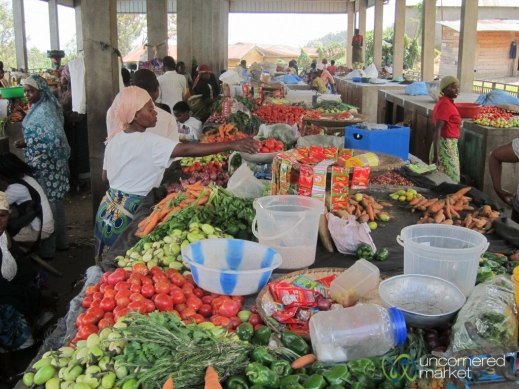Following a funding agreement between the government and the European Union, construction of the much-anticipated Kigali Wholesale Market for fresh produce could begin next year. According to projections from the National Agriculture Exports Development Board (NAEB), the project will cost around Rwf29.5 billion to construct and be built in two phases.
Read also:Newly built Kabale Central Market in Uganda handed over
The market was expected to serve about 100 wholesalers. Also, it was expected to have a yearly capacity of 180,000 metric tons of fruits and vegetables. The market was first proposed in 2010. It was expected that the first phase would be completed and operational by 2018 at the Kigali Special Economic Zone in the Gasabo District.
Why has the construction of the Kigali Wholesale Market has delayed
The project, however, has been delayed a number of times. The delays come due to a mix of budgetary restrictions and delays in fine-tuning the project designs.
The joint Team Europe and EU Member States are partnering on the construction of the Kigali Wholesale Market. This is according to the European Union (EU) Ambassador to Rwanda, Belen Calvo Uyarra. It is said that they expect that in the next year they will be able to go forward.
She stated this recently after paying a courtesy call on Donatille Mukabalisa, Speaker of the Chamber of Deputies. Uyarra met with Uzziel Ndagijimana, Rwanda’s minister of finance and economic planning, on October 6. The two signed a financing agreement for €69 million to fund the country’s transformational shift to inclusive, climate-smart agriculture.
The initiative also includes a Team Europe Initiative on Sustainable and Inclusive Agricultural Transformation. This is focused on the construction and development of the Kigali Wholesale Market. It is also based on related markets in other secondary cities as key components of inclusive and highly productive value chains.
Expected impacts of the project on the country’s income
It is expected that the market would boost the country’s horticulture export income and reduce fresh produce post-harvest losses.
According to a joint assessment conducted in 2017 by the University of Rwanda (UR), the Rwanda Agriculture Board (RAB), and the NAEB, post-harvest losses in horticulture, such as fruits and vegetables, were predicted to increase by about 40%.
Through the provision of new services including cleaning, grading, potentially drying, and cold storage, the market was expected to improve logistics planning, quality control, and storage of fruits and vegetables. It was also expected to increase product life and minimize the loss of unsold products.
According to NAEB, it will promote private investments in value addition in the agricultural sector.
Officials stated that the market will offer a modern and clean environment. Food service businesses, food manufacturers, restaurants, hotels, and regional exporters will be able to find high-quality fresh produce. Additionally, they will improve links and logistics for produce coming from rural areas, aggregation points, and markets.

Leave a Reply